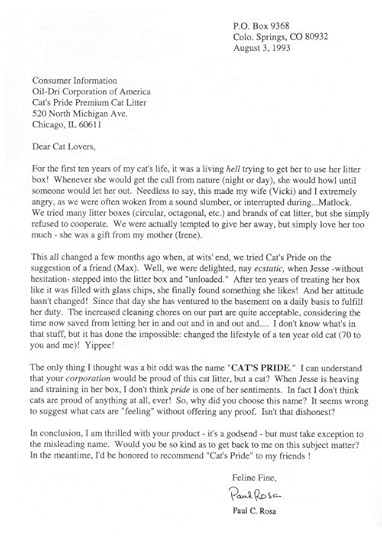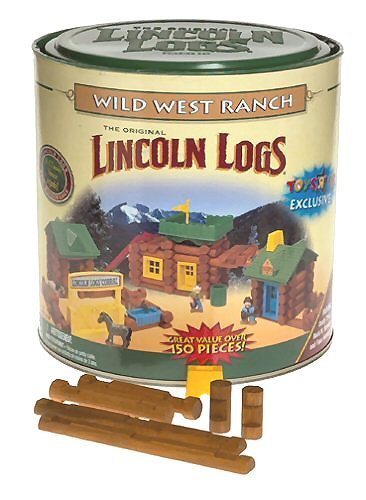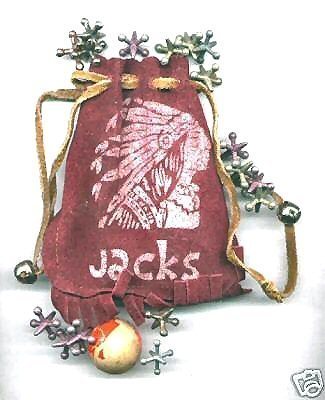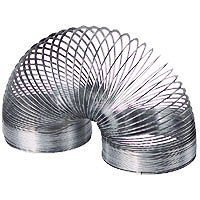Lynn Schneider's Blog, page 12
December 18, 2011
5 Punctuation Tips for Writing Humor
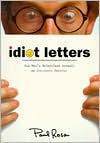 I recently resurrected a basket to use for a small paper recycling bin, since I am an earth-lover (those who recycle) as opposed to an earth-hater (those who throw glass, paper and plastic in with their other waste products). It was a magazine rack kind of thing and had some items in it which I needed to clean out and/or discard, a couple of old magazines, a half-finished knitting project from a few years back, and at the bottom was a book which had been given to me years ago (nearly twenty) called Idiot Letters by Paul Rosa, which I had not read.
I recently resurrected a basket to use for a small paper recycling bin, since I am an earth-lover (those who recycle) as opposed to an earth-hater (those who throw glass, paper and plastic in with their other waste products). It was a magazine rack kind of thing and had some items in it which I needed to clean out and/or discard, a couple of old magazines, a half-finished knitting project from a few years back, and at the bottom was a book which had been given to me years ago (nearly twenty) called Idiot Letters by Paul Rosa, which I had not read.
Mr. Rosa got the idea for the book when he received a letter from Pizza Hut which said it had been a long time since he had ordered from them. This "concerned" them, because Mr. Rosa was the "kind of customer they'd like to see more often". Mr. Rosa wondered just what kind of customer wouldn't they like to see more often? He decided to ask that question.
That started the whole project, the idea of chronicling the letters he wrote to companies regarding products he used regularly and the responses he got back. I found myself LOLing (which we all know means Laugh Out Loud and NOT Lots of Love, as some would have us believe). And it brought to mind a question. What was it about Mr. Rosa's writing that made it funny? I noticed a few tricks he used which seemed very effective.
I have listed the 5 punctuation tips below, which brings me to one slight diversion before I progress. I recently attended a Webinar (do you "attend" a Webinar?) and incorporated knowledge received from it regarding writing eye-catching titles for blogs, which might cause people to click more often than if it were titled in some other (lame) way. The Webinar (The Copyblogger Headline Clinic) was very informative and said that one good template for a blog title which appears to work is a numbered list. Examples: 10 Reasons Why Your Mother-in-law Hates You, or 16 Ways to Retrieve a Cork that has Fallen Into a Bottle of Wine, or 21 Tips and Tricks For Removing a Squirrel from the Top of Your Dryer (this actually happened to me).
The following is what I noticed about Mr. Rosa's book of letters:
Exclamation points! These little darlings of punctuation are frowned upon when writing serious literature, and should be used very sparingly, but for humorous writing they work really well to indicate a certain dorky enthusiasm. Take this example, from Idiot Letters, where Mr. Rosa writes to the Oil-Dri Corporation of America congratulating them on the effectiveness of Cat's Pride Kitty Litter:
For the first ten years of my cat's life, it was a living hell trying to get her to use her litter box!
Quotation marks. Quotation marks have been said (by serious editors) to be like Christmas tree lights, that they are mere decorations. I "respectfully disagree" when writing humor. Using quotes sets a phrase apart, draws attention to it, as if the writer is standing next to the reader, giving him a nudge and a knowing look. Just between you and me… Mr. Rosa says the following after telling the letter reader that he began using Cat's Pride on the advice of a friend:
Well, we were delighted, nay ecstatic, when Jesse — without hesitation — stepped in the litter box and "unloaded".
Italics. This method of altering a font shows emphasis and stressing certain words is funny, because it portrays an ebullience that may be uncalled for. In the same letter, for instance, the idea that anyone can be so charged up about kitty litter is in itself, funny, but the italics make it more so. Mr. Rosa says the following after telling the letter reader that he wonders at the wisdom of the name "Cat's Pride" for kitty litter:
When Jesse is heaving and straining in her box, I don't think pride is one of her sentiments.
Ellipsis. Mr. Rosa used the ellipsis (…) in order to disguise an activity, in a way that the reader knows it was disguised and further, knows exactly what that activity is:
We were often woken from a sound slumber, or interrupted during … Matlock.
Parentheses. Whenever a thought is an aside, and could be separated from the text with commas, it is appropriate to surround that text with parens. This should probably not be done in serious literature in most cases, but is most effective when writing humor. He also names the cat, the friend, the wife and even his mother by putting the name of the person in parentheses. Here are examples:
Whenever she would get the call from nature (night or day), she would howl until someone would let her out.
We were actually tempted to give her away, but simply love her too much — she was a gift from my mother (Irene).
The excerpts from the letter, the random sentences probably don't do the letter justice when taken out of context, so I am including it here in its entirety:
Disclaimer: This is not meant to be a review of Idiot Letters. I liked some of the the letter exchanges quite well, but some were a bit over the top for me. I will be using some of these tips in my next novel (which is supposed to be humorous in parts) because I think they work.








December 10, 2011
Toys Then and Now
 Much as I'm sure I probably shouldn't rant and complain at this time of year, I guess it's what I'm doing, as this is the time when us helpless grandparents are out Christmas shopping for toys. I think about the subject all through the year too, and decided it's as good a time of the year as any to rant, and complain, and be generally disrespectful to major toy chains and the marketing of junk to small children.
Much as I'm sure I probably shouldn't rant and complain at this time of year, I guess it's what I'm doing, as this is the time when us helpless grandparents are out Christmas shopping for toys. I think about the subject all through the year too, and decided it's as good a time of the year as any to rant, and complain, and be generally disrespectful to major toy chains and the marketing of junk to small children.
At Christmas, if one doesn't do a good enough job ordering online, one might be forced to venture into the dreaded [insert name of huge megopoly toystore here] in order to pick something out. Oh, how hard can it be, I ask myself. I can get puzzles, or coloring books, or story books, or whatever.
No. Not really. These items are located in Aisle 37, just before you get to the restrooms, and it appears as if no one is looking after this particular area. The merchandise is scattered and disheveled and misplaced.
Once inside the place, the agoraphobic comes out in me, and I want to go home and sit in a chair and pull a blanket up around me and think how glad I am to be where I am and not at [insert name of huge.. okay, it's Toys R Us, but you already knew that]. You enter the fluorescent-lit cavern, accosted by screaming children, excited children, running children, in the company of frazzled parents.
I always stand for a moment, get my bearings, before actually getting up the nerve to move past the shopping carts (super-sized for your convenience). My husband and I kind of look at each other and I expect him to lead the way, and he is clearly expecting me to. A few blank stares, a shrug or two of the shoulders, and we start wandering aimlessly, and I mean that literally, aimlessly.
Legos. We need Legos. Do we find them in the Age 5 – 8 aisle? My husband always asks, I never do. We're the opposite of the norm, where men don't ask for directions. He wants to get it over with as much as I do, so he asks, and we are directed to the Lego Aisle. Yes, there is an aisle just for Legos. A set of Legos only makes one thing. That's so you build it once, get bored with it, and buy another one. I don't think buying a set of generic Legos – that you could build and tear down and build up again – is really encouraged. That would mean the Lego company made less money. Less Profits = Not Good. Maybe it's possible to get a set of basic Legos, but I didn't see them at Toys R Us.
Back then, in the fifties, there were no Legos, but I had a set of bricks, made out of some kind of clay-like substance. They hadn't (and I'm not making this up) really invented plastic yet, or at least it hadn't yet been used for toys. The bricks were about the size of a domino, and there were half-bricks too, so you could build window and door frames and angle up the sides so the cardboard roof would fit over. The doors and windows were cardboard too, painted on pictures of doors and windows. I loved those bricks, and then wonder of wonders, the plastic kind came out and they were the same size but they had (get ready) white plastic doors and windows that actually moved! You could swing them open! How cool was that?
Here is the picture of the 1950s version of legos:
Remeber Lincoln Logs?
And Jacks?
And of course the favorite Viewmaster:
And finally, the popular Slinky:
Today, there are huge, elaborate swing sets, with built-in clubhouses. There are bars to climb, and a couple of slides, and different kinds of swings, and some black rubbery stuff has to be put down all around the thing so that no one gets hurt. It's probably a law, I'm not sure about that.
Back then, my father hung a swing from the old Umbrella Tree (I was never sure of the correct name for that tree, but it was shaped like an umbrella and if you pumped high enough your feet might touch the leaves.) And we had clubhouses too, where we took our comics and our dolls and other stuff, and there was a secret password you had to know to get in. The clubhouse was usually nothing more than a few boards and whatever material could be scrounged, which was the fun of it. We did it ourselves.
Today, backyard children's swimming pools are ten feet high, and need a special pump to blow them up, and there's water slides and they're shaped like castles or pirate ships, in garish colors, and they're so… well, plastic.
Back then, when it was hot, if we were lucky our Moms would fill up the old washtub and we could sit in it and play with water.
We didn't have that much to play with. We made do. We played tag outside, we raked big piles of leaves and jumped in, we played hide-n-seek, we built tents by throwing blankets over card tables. I had a playroom that was nothing more than a closet under the stairs. It was fine by the door but you couldn't do too much in a room that's a foot high, as it was at the other end. Some kids didn't even have that, I was one of the lucky ones.
I remember all of this fondly, of course.
What will happen to all the plastic we cast aside today? Plastic toys are never recycled, plastic swimming pools spring leaks, and we don't fix them. Just throw them away. Get something bigger, better, more plastic, more fun.
We baby boomers think we were more resourceful than children today. Today's kids are scheduled up with baseball games, and soccer games, and gymnastics, and swimming lessons, and ballet, and music lessons and have the technology that makes it possible for them to not have to think up ways to have fun. It's kind of sad.
But I don't think today's children think they're missing anything. It's all they know, as it was for us; we, who couldn't imagine what it was like to grow up in the depression.
I wonder where it will take us. To a new level of plastic and technology? Or maybe back to basics.








December 2, 2011
National Novel Writing Month 2011 Ends
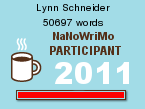 National Novel Writing Month (NaNoWriMo) for 2011 is over now, and a lot (thousands? millions?) of writers have accomplished the 50,000-word goal. I completed mine, with a few hundred words to spare, and even though I didn't write every day, and even though I didn't make the daily wordcount every day, I had enough inspired days where I wrote twice the number of words to make up the difference.
National Novel Writing Month (NaNoWriMo) for 2011 is over now, and a lot (thousands? millions?) of writers have accomplished the 50,000-word goal. I completed mine, with a few hundred words to spare, and even though I didn't write every day, and even though I didn't make the daily wordcount every day, I had enough inspired days where I wrote twice the number of words to make up the difference.
It's a way to encourage authors, both first-time and those who've done it before, (I will refrain from using the term "experienced") to get it down on paper, whether or not it's ready for prime time. And it's likely that it won't be ready, when writing under a deadline like that.
I've been writing on a deadline for several months now, with this blog, so I was fairly used to it, and I have come to realize that yeah, it's probably going to suck, the first time you scratch it out, but it will get better and better as you go along, easier for the words to flow onto the page. And the bad stuff can be changed later.
I had a head start anyway, because my novel, Perigee Moon, was already in outline form. I pretty much knew what would go into each chapter, yet I did find that some chapters needed to be split up, as I was writing. I completed 17 chapters out of 38 so I'm nearly half way, and I'm aiming for a 120,000 word count or less, so it fits.
Going into December, my personal goal (without the NaNo people to keep urging me on) is to do the next 50,000 words and wrap up the first draft by early January. I'm aiming for completion at the end of January in order to submit it to the ABNA, in which I will once again no doubt be thrown out in the first round, because my short descriptions are never any good.
One thing that is troublesome, is that once again, the story is chronological, and I fear that may be amateurish, to have a story start at the beginning and end at the end. It's one of those baby boomer stories too, and so it goes on for a really long time. But I wanted to chronicle a relationship that began very early (age 9) and develop it through the years, and couldn't see how to do it other than as it happened, step by step.
I really enjoy writing, and thinking about the people I'm constructing makes me happy, but I seriously wonder if it's not just a hobby. There are just too many great authors out there, and it's too easy to get a book onto a Kindle or into print, for me to ever make a difference in the literary world.
Perigee might be my last effort, or I might take one more on, at the suggestion of a couple of friends, and write about a group of us, and the different directions of our lives with some fictional intrigue to make it more interesting. Kind of a joint effort, basing characters on real people. We'll see.
Meanwhile, I'm plotting on.








November 27, 2011
Just Say No To Zero Population Growth
 Michelle Duggar, 45, and her husband, Jim Bob, have revealed they are expecting their twentieth child. Well, whoopee. What a surprise. And just when we were hoping for the joys of menopause to hit Michelle.
Michelle Duggar, 45, and her husband, Jim Bob, have revealed they are expecting their twentieth child. Well, whoopee. What a surprise. And just when we were hoping for the joys of menopause to hit Michelle.
"We are so excited," Michelle said. "I was not thinking that God would give us another one, and we are just so grateful." I'll bet you are grateful. Now it's for sure your TV show will be renewed for another season.
The Duggar's motto is "There's always room for one more." Really? Is that the motto? Is that what it means to bring a child into the world? Why not have another one, we have room in the dorm, one of the older ones is moving out. What was her name again? Not sure, but it starts with the letter "J".
Seems as if that's a bit of a superficial motto but then, when you're into hyping your reality show and your new book "A Love That Multiplies", that's as good a motto as any.
Jim Bob (his name would have to be Jim Bob, isn't it fitting?) joked "I don't know how it happened." Ha, ha! Isn't Jim Bob funny?
Jim Bob looks like he's been driving the Clown Car, and says (all joking aside about him not knowing how it works) that they "didn't want to stop at an odd number." Oh, well then, that makes perfect sense. So given that 20 is an even number, and the fact that they already live in a house big enough to house the cast of Saturday Night Live and there's always room for one more, why not bring another human being into this world? Those are good reasons. As good as any I can think of to take on the responsibility of another child.
It's obscene. That these self-professed Christian people continue to do this, take advantage of the fact that Michelle's eggs are refusing to give up and Jim Bob's Super Sperm are still paddling upstream, in order to procreate again and again so they can get on the national news, and all over the internet, and write more books, and get the title of their TV show changed to 20 Kids and Counting. It is materialistic and irresponsible and reprehensible. What selfish individuals they must be.
And of course, the twenty kids and their future spouses are brain-washed into thinking that this is the right thing to do and what if each couple procreates ten times over? Michelle and Jim Bob (I still can't believe his name is really Jim Bob), will have 400 grandchildren.
It "takes a village" to raise a child. It will take a village to house the Duggars and their children and grandchildren.
What if we all did that?
I know, I know, Michelle and Jim Bob don't care about that. They are just glad that they did it first, and they are the lucky ones to get the reality show. All the couples who come after them and have twenty kids won't be so lucky. But maybe if they start earlier, and have one per year until they're 45, they might be able to out-procreate the Duggars by half a dozen kids or so. And don't forget multiple births. An added bonus!
It's a job to them. See, we have to have all these kids so we can get on the Today Show, and everyone will know who we are, and we can write books, and make lots of money. That way, Jim Bob doesn't have to work too hard at being a "realtor".
Never mind that we have recently hit a world population of seven billion and we are running out of resources. Don't you worry about that, Michelle and Jim Bob. You just think about how that new little one is going to increase your coffers, and get you more attention, okay? Because that's what you're doing, despite all your lamentations otherwise, that you are "grateful for each and every gift of a child". I guess you could look at it as a "gift".
I put a scene in my novel, Whatever Happened to Lily?, about this very thing. No one ever mentioned it, and it was a bit disappointing, because I'd hoped it would be a social commentary of sorts. That the girl Katie, who Jay wanted to get it on with, was only interested in marriage and having twenty children to become "warriors for God". He didn't want any part of that scenario. Good for Jay, he thinks a lot like I do.
I thought a long time about writing this, because it has all been said before, by others, again and again, how these people don't get it. It enrages me, that they WILL NOT STOP IT. And I will supply no links to any website that condones the behavior of the Duggars or anyone else in the quiverfull movement.








November 18, 2011
Life is Good, No Matter What
 On Thursday, November 17, 2011, I attended the funeral of Holly Sneider (1972 – 2011). I had never met Holly, I only knew her parents and don't live close enough to them that we see them often. But when we did meet up with Holly's parents, at family reunions or the occasional meet-ups at my mother-in-law's house, there was a connection there — a feeling that I'd like to get to know them better. I liked them a lot and hoped they felt the same. They seemed to think about things the way I do.
On Thursday, November 17, 2011, I attended the funeral of Holly Sneider (1972 – 2011). I had never met Holly, I only knew her parents and don't live close enough to them that we see them often. But when we did meet up with Holly's parents, at family reunions or the occasional meet-ups at my mother-in-law's house, there was a connection there — a feeling that I'd like to get to know them better. I liked them a lot and hoped they felt the same. They seemed to think about things the way I do.
In April of 2010, Holly was diagnosed with Stage IV colon cancer, already in the liver. As Christopher Hitchens notes wryly when speaking of his own cancer, "There is no Stage V". Holly was a fighter, and she had a husband and three children, and decided cancer wasn't going to beat her, not without a fight. And she gave it her very best shot. Reading her Caring Bridge page left me with a knot in my stomach, that anyone could go through so much agony. But she didn't want to leave her children without a mother, her husband without a wife, her parents without their daughter, and her brothers without their sister.
She thought of other people before herself, and throughout her battle never lost her faith, and she never lost her will to live. Some people seem to especially touch those around them and Holly was one of those. Her illness affected the entire small town of Milan, Ohio where she lived.
As her brother said, at the funeral, It's not how it begins, it's how it ends that matters. Holly was brave to the end, and she inspired a whole lot of people to think about what she was doing and because of her, that they might find the strength to do the same if the need arises. And her brother admitted that he thought he'd be a better person, that he would be better equipped to handle the bad stuff in his life, because of Holly and the example she'd set.
Though she only lived 39 years, she had made a difference. Just having her around that long was a gift to everyone who knew her. At the funeral home, the line of people who wanted to pay their respects, to tell the family what Holly had meant to them, stretched out the door and down the block. Some people stood in line for two hours.
It is always deeply tragic when someone so young is taken from us, especially by a disease as insidious as cancer. Cancer sucks. There is no doubt about it. It scares me worse than anything else, yet statistics say other afflictions kill people more often, heart disease and even the flu. But a diagnosis of cancer is a life-changing event, even if you do beat it, you aren't really, ever the same.
If only Holly could have beat it, she'd never have been the same. No, her body would have been forever damaged by the effects of the massive amounts of chemo she took, but she would have been okay with that. I picture her as becoming a life-long cancer fundraiser, or a cancer counselor, perhaps. If she'd been able to beat her own, she'd have probably devoted the rest of her life to helping others do the same.
She was an inspiration to all who knew her. True to form, her motto was:
Life is good, no matter what!
Holly Sneider, 1972 – 2011.









